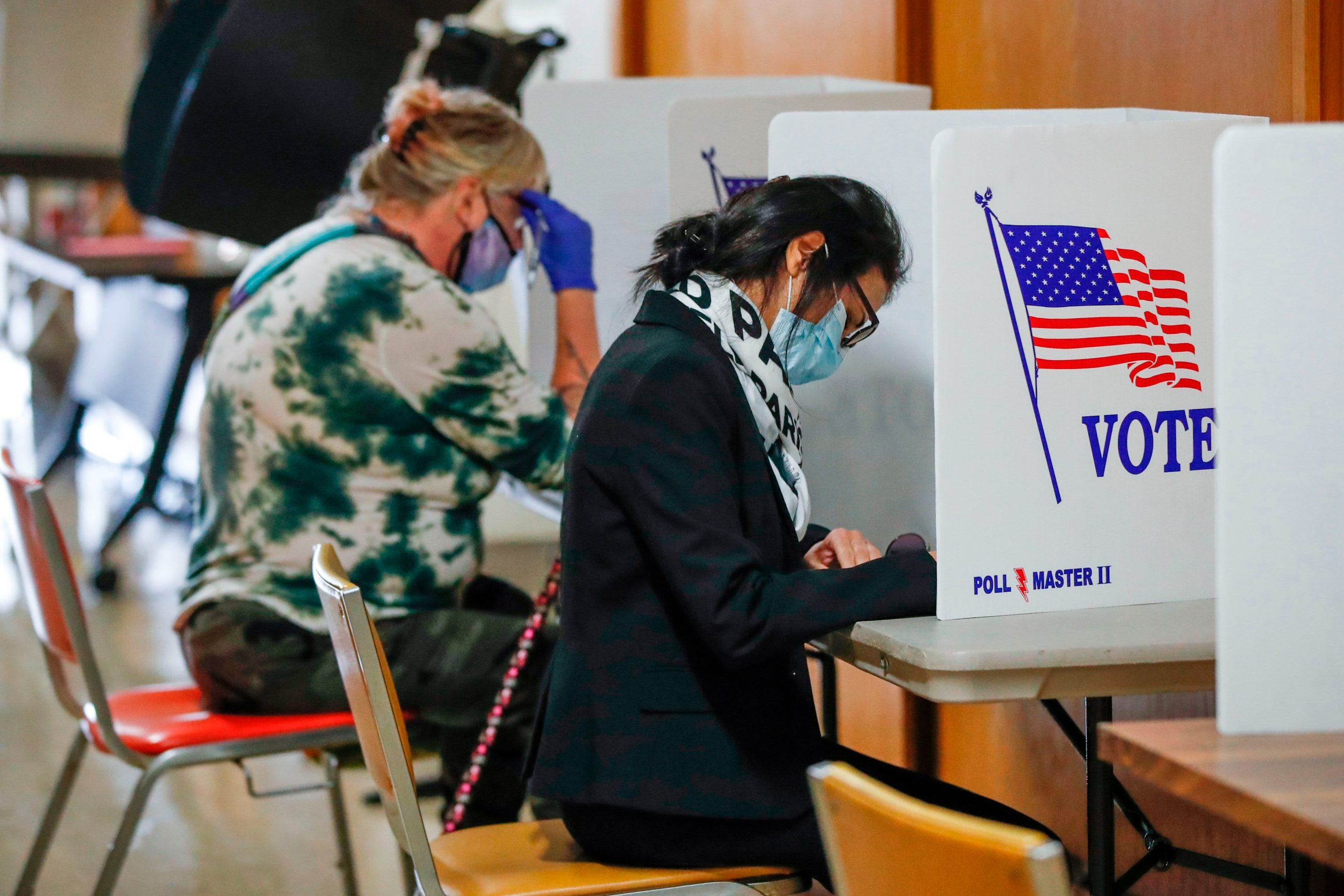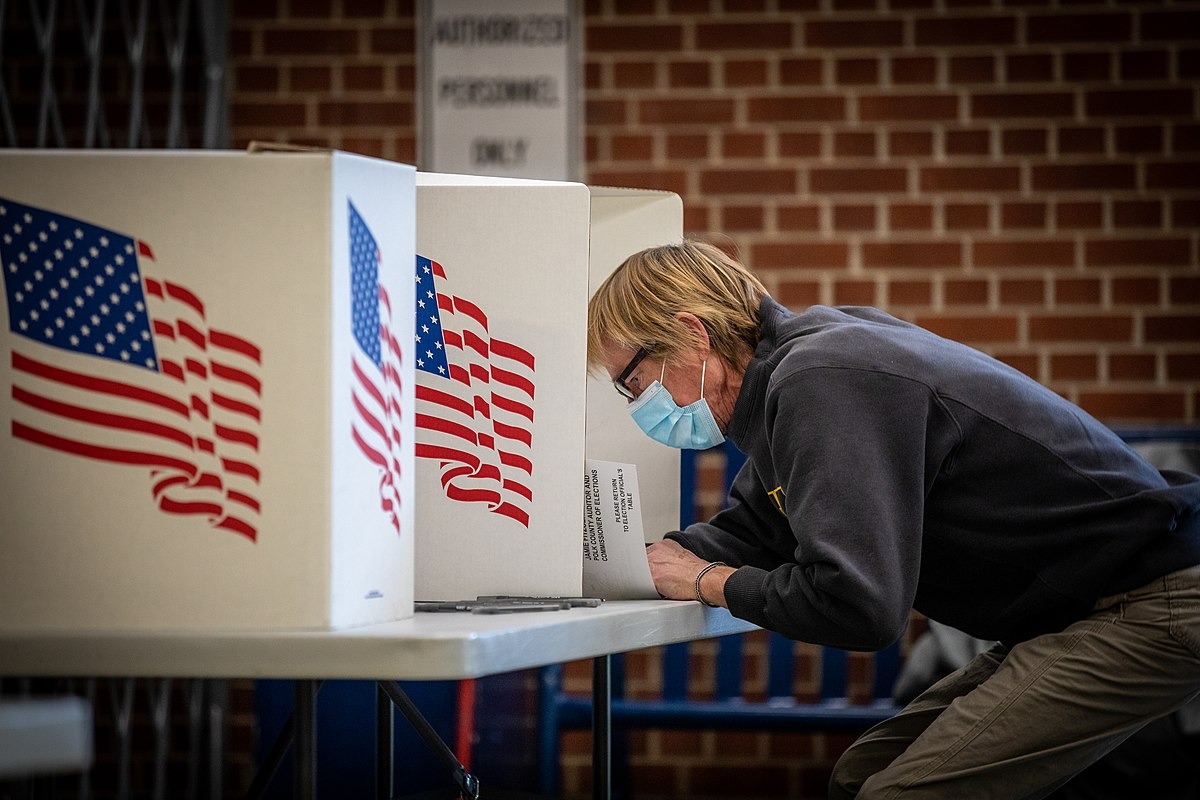Four years ago, Wisconsin emerged as a pivotal battleground where Donald Trump vigorously contested the election results, coming close to overturning them.
A barrage of lawsuits targeted hundreds of thousands of predominantly Democratic votes, exploiting certain election policies regarding absentee ballots, early voting, and ballot completion by election workers.
The legal battle reached the state Supreme Court, which was then dominated by conservatives and narrowly ruled against Trump’s efforts to invalidate the results. However, despite this close call, Wisconsin lawmakers have done little to prevent a similar scenario in future elections.

Voters (Credits: CNN)
There has been a notable absence of measures aimed at clarifying the complexities of absentee ballots that Trump sought to exploit. Loopholes remain unaddressed, leaving room for the insertion of conspiracy theories and misinformation by former president’s allies.
Meanwhile, the Wisconsin Elections Commission, responsible for overseeing elections, has faced partisan attacks and attempts to impeach its top official.
This starkly contrasts with swing states like Michigan and Pennsylvania, where significant reforms have been implemented to enhance election security and address vulnerabilities.
In Wisconsin, critical issues such as the use of drop boxes, accessibility for disabled and elderly voters, ballot processing, and the protection of election oversight remain unaddressed. This lack of action concerns election workers and watchdogs in the state.

Voters (Credits: Gallup News)
Despite calls for change, little progress has been made, leading to a sense of alarm among those involved in the electoral process. Scott McDonell, Dane County Clerk, noted that statewide, there has been minimal change, emphasizing the need for significant reforms.
Jay Heck, the executive director of Common Cause Wisconsin, warned of dire consequences if the necessary reforms aren’t enacted, highlighting the potential for a crisis to erupt surrounding Election Day.
Wisconsin’s failure to address key electoral vulnerabilities leaves the state susceptible to repeating the chaos and uncertainty witnessed in the aftermath of the 2020 election.
Without decisive action, the integrity of future elections in Wisconsin remains at risk, with potentially far-reaching consequences for the democratic process.

























Wisconsin need to get it together fast sh– -or get off the pot!!!!!